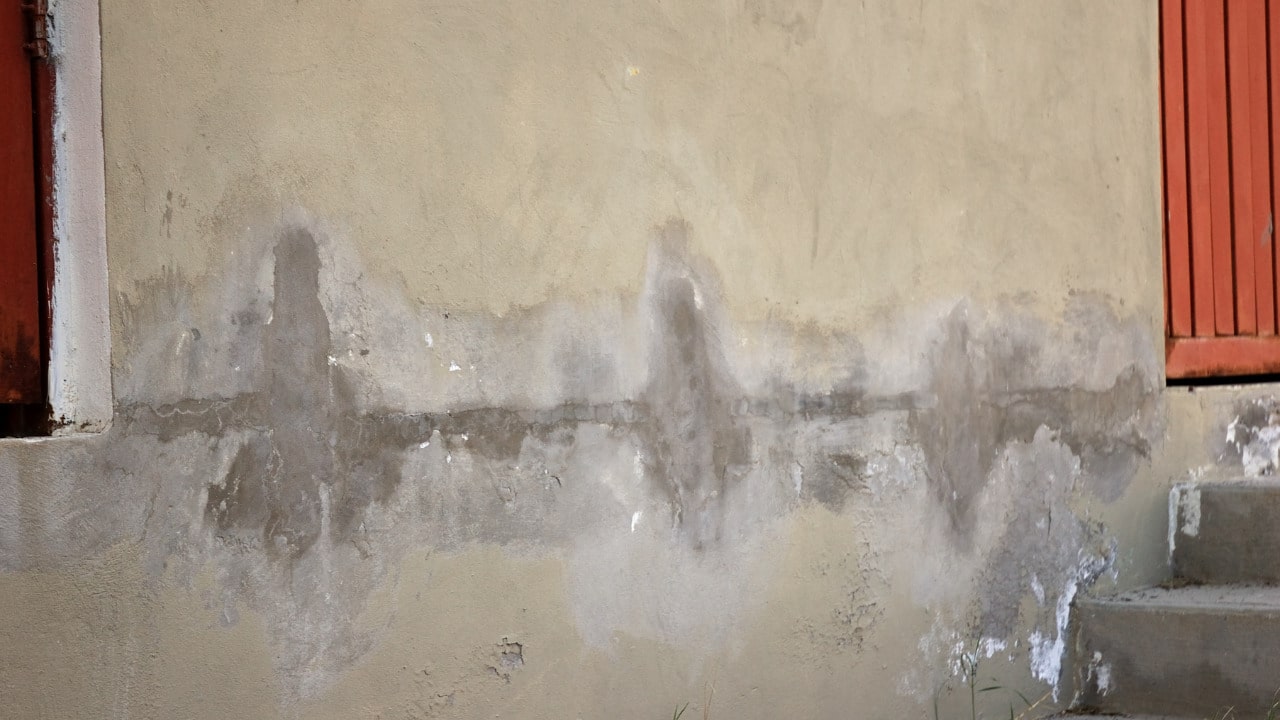Basements are already recognized as one of your home’s coldest and dampest areas. We don’t always like to talk about the odd sewer odor in basement areas created by pipes and standing water. It’s not an enjoyable experience for any homeowner, mainly because most of us regularly utilize our cellars and basements.
So, what’s causing these foul scents, and how can you eliminate them? Unfortunately, the sewage odor in the basement is almost certainly due to a well and necessitating intervention somewhere in the plumbing system.
Instead of risking health problems such as sinus infections, bronchitis, and migraines, learn how to get rid of basement stink alone. It saves you time and money by eliminating the need to hire an expert. Follow the helpful methods below to flush those horrible sewage gas scents down the toilet.
Table of Contents
What Is Sewer Gas? An Overview
Sewer gas has a distinctly foul, rotten egg scent. We’ve all experienced the smell of rotten eggs emanating from a drain. Hydrogen sulfide is the source of the recognizable “rotten egg smell.” A nasty sewer odor in the basement can be dangerous and difficult to bear.
Sewer gas is dangerous because it smells like decaying organic things frequently found in sewers. If you’re exposed to the impacts for a long enough period, they could be harmful to your health. Several of these gases have the potential to catch fire.
Reasons Of Sewer Smell In The Basement
Most of your efforts to determine the source of the sewer gas smell in your home are based on different facts. You must first understand why sewage gas smells enter your home and where to search beyond a septic tank breach.
Drains, vents, and pipes are the most natural places to start for plumbing problems. Have some of this equipment handy when checking for sewage leaks and problems.
Water Trap Because Of Lack Of Use
Are you familiar with the curve pipe beneath your kitchen or bathroom sink? There’s a reason for the bend in the pipe. Its goal is always to retain a small volume of water in the pipe to prevent sewer gas from entering your home through the line.
These water traps can also be found beneath basement floor drains and laundry tubs. Because the water in any disused drain will eventually evaporate, water traps can dry out due to lack of use. Sewer gas may enter your home if this happens.
How To Fix The Water Traps?
However, if the water trap is left unused for an extended period, it will dry out and lose its odor-repelling properties. Fortunately, a little hot water solves the problem.
Pour a gallon of water into the dry trap and a few drops of mild dish detergent for added freshness. This method can also be used to remove sewer odors from shower drains.
Check The Sewer Gas Plugs
The floor drain in your basement operates similarly to the drain in your bathroom or kitchen sink. It has a trap that allows water to sit in the pipe and keeps sewer gas out of your home. Floor drains, on the other hand, contain something different.
They have a portion that goes around the water trap. This is the yellowed area depicted below. This portion has a stopper that prevents sewer gas from escaping.
This stopper must be reinstalled whenever the drain is cleaned. Sewer gas can enter your home if this equipment is absent, stinking everything up. It’s easy to resolve this issue only by replacing the old plug with a new one.
Fix The Improper Ventilation
If your laundry room is in the basement or immediately above it, incorrect venting is a problem to watch out for. Most appliances have a vent system that captures and regulates the movement of sewage gases through the vent stack and out into the atmosphere outside the house.
If your washing machine’s drain is clogged with hair or isn’t connected correctly, these basements’ drain odors will seep back into your home. The most efficient technique is to inspect the pipes and use bleach to clean any obstructions.
It’s critical to replace the seal if it’s broken. The caulk around the toilet’s base is the same way. Replace it as soon as possible if it’s dry and cracked.
Fix The Broken Sewer Line
The sewer line is one of the most common causes of basement odors. Several issues with the line could result in these offensive odors, including a damaged ejector pit or pipe damage. The ejector pit needs a tight seal to keep the gas out, so inspect it for cracks and any damage.
It could also very well be an issue with the sewer lateral, which is the pipe that connects the home to the main sewer line. These laterals can wear down over time and cause issues, such as cracks or breaks as well. Sewer inspections every couple of years are highly recommended, as they will help you understand the health of your system and alert you when you might need sewer lateral replacement or other servicing.
Cracks in the pipes are another problem. The wastewater from the sewage system seeps into the ground and the sump pump. This sump pump is responsible for keeping your basement dry from the start.
If too much sewer water accumulates, the odor will seep into your home. To avoid further damage to your home’s soil and foundation, this problem usually necessitates the assistance of a plumber. Therefore, keep their phone number ready just in case.
Use Vinegar For Clogged Drain
If you are wondering about fixing the plumbing issues and odor in the basement, nothing would be better than vinegar for the clogged drains.
This formula clears a drainpipe clog while keeping the septic system in good working order. When you notice an unpleasant odor or water draining too slowly in sinks, showers, or the toilet, use this basement odor eliminator with the explosive combo of vinegar and baking soda.
Start by pouring baking soda down the drain to make this natural pipe cleaner with essential household items. After that, pour in the vinegar and cover the drain with a seal or a towel to allow the two substances to react inside the pipes.
Remove the plug and pour hot water down the drain after allowing this mixture to settle for around 30 minutes.
Fix Dry Toilet Traps
Although it’s less likely, the water in the toilet trap could have also evaporated. This could be brought on by several weeks of inactivity. Undoubtedly, a simple flush will return that water and eliminate the unpleasant scent. An unreliable wax ring seal between the toilet flange and the base of the toilet could also be the source of a sewage odor in a bathroom.
Sometimes a swaying toilet might cause this wax ring to leak, causing the seal to be compromised. Sewer gas will escape from behind the toilet if there is a leak in this seal. If so, remove the toilet and swap out the wax ring. Use plastic shims between the stool and the floor to stabilize the toilet if it rocks, then caulk the joint.
Doing this can prevent the fresh wax ring from being ruined by a rocking toilet.
Final Thoughts
You’ll be well on your way to reviving the fresh scent in your home and demolishing irritating scents that are unpleasant for everyone if you utilize these simple ways for identifying and eliminating the sewage smell in the basement.
Whatever the root of the problem, these simple instructions will give you everything you need to control basement odors and keep your home running smoothly.
Frequently Asked Questions (FAQs)
Is Sewer Smell Harmful?
Even at very low concentrations, this gas has a rotten egg odor. The sense of smell can be affected by high quantities of exposure, rendering this warning signal unreliable. Hydrogen sulfide can immediately induce unconsciousness and death at very high concentrations.
Why is there a sewer gas smell in my basement?
A sizable basement floor drain in your property is the most frequent reason for sewage gas odors in basements. This drain, which extends far into your sewer system, may emit unpleasant sewer gas scents when: In the drain line, there is damage. The drain pipe needs to be cleaned or is obstructed.
How to test if there is sewer gas in my house?
A sewage gas leak detector—also known as a straightforward gas leak detector—can be used to do this. The use of a plumber is another option. He will perform an acoustic leak test and a smoke test to determine where the leak in the pipes may be.





